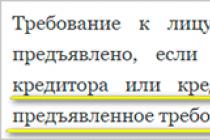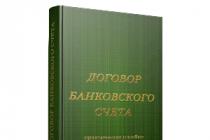Current 2018:
Tax accounting and taxation for small businesses are allowed to be carried out according to simplified tax schemes and rules. But in order to pay less (and, accordingly, have to report less), you must first, during registration tax accounting in the Federal Tax Service, choose simplified methods. Submit applications to use the most profitable, promising methodology and taxation system. The Tax Code allows you to apply various modes of calculating and collecting taxes from small businesses:
- Simplified tax system(USN).
- Unified tax on imputed income (UTII).
- Unified Agricultural Tax (USAT).
- Patent tax system (PTS).
The choice does not always entirely depend on the wishes of the potential payer. The use of specific types of simplified regimes is limited by the requirement for the industry, subject, type of activity or the total amount of revenue received by the payer.
Benefits from using modes:
- the property tax is abolished (except for the property of individuals);
- eliminate the need to account for and pay VAT;
- entrepreneur (IP) is exempt from personal income tax payment(only that income that is associated with his entrepreneurial activity.
STS (Simplified Taxation System)
Can be used by a wide range of individuals, both individuals (IE) and legal entities (LLC), working in the field of small business. There are two types of objects of use according to the simplified tax system, and businessmen are required to decide with the Federal Tax Service which one they want to use:

- Based on income minus expenses. The rate on it is 15% of the difference between income (revenue) received from doing business and expenses (expenses) for it. Suitable for companies and private individuals who reflect fixed costs that can be deducted to reduce the tax base. For example, for trade (the amount of products purchased from suppliers is deducted), installation (the cost of equipment, purchase of components is deducted), production work (depreciation, materials, electricity, other production costs). Payments under the simplified tax system must be made quarterly, before the 20th day of the month following the end of the quarter.
- By income. The rate is 6% of the amount of revenue earned from the business. Suitable for those types for which it is difficult to account for costs. For example, the scope of providing various services: maintaining accounting, legal, information orders. This tax accounting is extremely simplified to maintain, reports and payments for it are listed and provided quarterly, within the same time frame as the simplified tax system (the previous method is the difference between income and expenses).
Chocolate production as a small business
UTII (Unified tax on imputed income)
The object of taxation within the framework of this methodology is recognized as imputed income. That is, a certain amount determined through statistical calculations that determines the fixed revenue receivable in a particular industry, by region. The base is determined by multiplying this fixed value by the tax rate (15%) and clarifying, adjusting factors. They are installed depending on:
- location of the point;
- planned and actual inflation levels;
- other factors affecting business.
UTII is credited to the budget quarterly, until the 25th day of each month following the end of the reporting quarter, that is, until April 25, July, October and January.
 It is beneficial for dynamically developing companies whose revenue is equal to or higher than the regional average for a specific type of business to switch to UTII. Practice shows that persons who initially used the simplified tax system, as they develop, transfer taxation to UTII. This will allow you to significantly save on accountant services.
It is beneficial for dynamically developing companies whose revenue is equal to or higher than the regional average for a specific type of business to switch to UTII. Practice shows that persons who initially used the simplified tax system, as they develop, transfer taxation to UTII. This will allow you to significantly save on accountant services.
Unified Agricultural Tax (Unified Agricultural Tax)
A preferential regime introduced to stimulate the development of agricultural producers. The Unified Agricultural Tax provides for the least burden, the payment for it is only 6% of the difference in income and expenses of entrepreneurs. But it also sets out clear conditions for working in the system: this regime is only allowed to apply to those whose income from the production and sale of agricultural products is more than 70% of the total turnover. Violation of such a requirement threatens to transfer the company to general mode taxation and recalculation of all taxes for the period when the violation was detected, fines and other sanctions.
According to the law, the unified agricultural tax must be calculated and paid twice a year - advance payment for half a year - until July 25 current year, make full payments for the year, until March 31 of the following year.
PNS (Patent taxation system)
 Patents are not introduced for all types of activities, but only for those categories that are considered priority in the subject of the Federation. The list is approved and published in regional official sources, changes are regularly made to it. This type of taxation allows you to minimize the costs of accounting, both tax and accounting, since it does not require the provision tax returns and reports. Approved for use only individuals(individual entrepreneurs). The transfer amount is reduced compared to other types; this has become a measure to stimulate industries needed by the region, allowing the development of private activities and businesses in the state. The patent fee is sent to the budget twice a year. The first part - one third of the amount - during the first quarter of the year or 90 days from the date of transition to the patent (if the company was formed and adopted the PNS not from January 1). The second is two thirds, until the end of the tax period. A receipt for the transfer can be obtained directly from the local Federal Tax Service.
Patents are not introduced for all types of activities, but only for those categories that are considered priority in the subject of the Federation. The list is approved and published in regional official sources, changes are regularly made to it. This type of taxation allows you to minimize the costs of accounting, both tax and accounting, since it does not require the provision tax returns and reports. Approved for use only individuals(individual entrepreneurs). The transfer amount is reduced compared to other types; this has become a measure to stimulate industries needed by the region, allowing the development of private activities and businesses in the state. The patent fee is sent to the budget twice a year. The first part - one third of the amount - during the first quarter of the year or 90 days from the date of transition to the patent (if the company was formed and adopted the PNS not from January 1). The second is two thirds, until the end of the tax period. A receipt for the transfer can be obtained directly from the local Federal Tax Service.
Benefits for small businesses are advantages that the state provides to certain categories of entrepreneurs, which puts them in a more advantageous position compared to other business entities. The preferential regime for the activities of individual entrepreneurs, micro-enterprises and small businesses reduces the receipt of taxes and contributions to the budget, but it solves other issues of national importance:
- Ensuring self-employment and further pension provision for entrepreneurs without employees (freelancers, artisans, persons providing various types of services);
- Creating new jobs and removing the burden from the state to support the unemployed;
- Reducing social tension in society due to increased well-being of the population;
- The development of new types of activities and the organization of small innovative productions, which, although they do not guarantee large profits, do not require large financial investments.
Now in Russia there are more than 20 million people of working age who do not officially work anywhere and are not registered with the tax authorities as entrepreneurs. The state is interested in bringing this category out of the shadows as much as possible, so that at least these citizens take on the issues of self-sufficiency. To do this, it is necessary to make running a legal small business simple, convenient and profitable, which means:
- Minimize the tax burden for this category of taxpayers;
- Reduce administrative barriers when state registration small businesses;
- Simplify the reporting of small businesses to government agencies;
- Reduce administrative and tax control and reduce the amount of penalties for violation of the law;
- Provide special conditions for small businesses to receive orders for the production of goods and sales of services, in particular, within the framework of government procurement.
But before we find out what benefits the state provides to small businesses in 2019, let’s figure it out. what are they
Who is a small business?
Law No. 209-FZ of July 24, 2007 identifies several categories of small and medium-sized businesses:
- individual entrepreneurs;
- peasant (farm) farms;
- business companies;
- business partnerships;
- production cooperatives;
- agricultural consumer cooperatives.
More state support It is small businesses who use it, not medium-sized ones, so let’s take a closer look at the criteria for inclusion in this category. Amendments made last year to Law No. 209-FZ have made it possible since 2016 to classify a larger number of businessmen as small businesses (including micro-enterprises):
- The limit on annual revenue from the sale of goods and services for small enterprises increased from 400 to 800 million rubles, and for microenterprises - from 60 to 120 million rubles.
- The permitted share of participation of others has increased commercial organizations(who are not small and medium-sized businesses) in the authorized capital of a small enterprise - from 25% to 49%.
- The average number of employees remained the same - no more than 15 people for a microbusiness and no more than 100 people for a small enterprise.
- The period during which a businessman belongs to this category, even if he has exceeded the limit on revenue or number of employees, has been increased from two to three years. So, if the limit was exceeded in 2017, then the company will lose the right to be considered small only in 2020.
As for individual entrepreneurs, the same criteria for dividing them into small and medium business: by income and number of employees. Those individual entrepreneurs who are not employers are assessed by the revenue received for the year (data in the table above). Individual entrepreneurs working only on the patent tax system are classified as micro-enterprises.
Tax breaks for small businesses in 2019
The most important advantage of tax breaks for small businesses is that they directly reduce the amount of taxes that a businessman must transfer to the budget. In Russia, there are four special taxation systems with low tax rates, which can only be used by small and micro businesses:
- - the annual revenue limit in 2019 is no more than 150 million rubles, the number of employees is no more than 100 people.
- - there is no limit on annual revenue, but the number of employees should also not exceed 100 people.
- - only individual entrepreneurs can work in this mode, the permitted number of employees is only 15 people, and for all types of individual entrepreneur activities in total. The annual income limit for an entrepreneur with a patent is 60 million rubles.
- - there is no limit on annual revenue, but the share of income from the sale of agricultural products must be at least 70% of the total income. The number of employees is limited (no more than 300 people) only for individual entrepreneurs and fishing organizations and individual entrepreneurs. There is no such restriction for agricultural organizations.
Additional implicit benefit for USN Income and UTII is a reduction in the advance payment and quarterly imputed tax by the amount paid in reporting quarter for employees and individual entrepreneurs for themselves.
Since 2016, the list of tax benefits for small businesses has been supplemented by the right of regional authorities to establish even lower tax rates on their territory for payers of UTII and simplified tax system than those provided for by these regimes. Thus, the tax rate for UTII can be reduced from 15% to 7.5%, and for the simplified tax system - from 6% to 1%. In fact, regions can create real tax havens on their territory with almost zero taxation. All that the state requires from entrepreneurs registered in these regions is the creation of jobs and the payment of insurance premiums for workers.
Finally, in the period from 2015 to 2020, first-time registered individual entrepreneurs have the right to tax periods(maximum - two years) after registration, work within the framework, that is, at zero tax rate. To do this, you will need to satisfy a number of conditions:
- be registered for the first time as an individual entrepreneur after the entry into force of the regional law on tax holidays;
- choose tax regime PSN or simplified tax system;
- carry out activities specified in the regional law on tax holidays.
Thus, tax benefits in 2019, small businesses are allowed to start their own business by investing most of the income received in the further development of the business, rather than giving it to the state in the form of taxes.
Administrative benefits for small businesses in 2019
It is no secret that the legislation regulating business activities in Russia can be called complex, confusing, and replete with severe sanctions for its violation. One of the reasons forcing entrepreneurs to go into the shadows is administrative difficulties, such as complex order reporting, personnel processing and cash settlements, frequent checks supervisory authorities, reluctance of banks to issue unsecured loans, etc.
To resolve these issues, the state has proposed a number of administrative benefits for small businesses, which are valid in 2019:
- Individual entrepreneurs without employees who provide services, perform work or sell products of their own making may have until July 1, 2021.
- Organizations that are classified as small can conduct accounting in a simplified form
- Small organizations and individual entrepreneurs have the right to operate in a simplified manner and not set a cash limit.
- Employers belonging to the category of small businesses have the right to register for a period of up to 5 years (according to general rule, employment contracts with most categories of employees are unlimited). In this case, two conditions must be observed: the number of personnel cannot exceed 35 people, and the employee must give his consent to conclude a fixed-term contract.
- Supervisory holidays for small businesses (ban on scheduled non-tax audits) have been extended until the end of 2020. Unscheduled non-tax audits, as well as audits from the Federal Tax Service, can still be carried out at any time.
- Regional and local authorities in the constituent entities of the Russian Federation can enter into lease agreements for buildings and premises with representatives of small businesses on preferential terms for 5 years, and also provide tenants with a preemptive right to purchase such property.
- Upon receipt bank loan small businesses can turn to guarantee organizations to obtain, which significantly increases the borrower’s chances.
- A special benefit is provided for the participation of small business representatives - government customers are required to make at least 15% of the total annual volume of purchases from this category.
Financial benefits for small businesses in 2019
Here we're talking about no longer about improving the conditions for doing business, but about benefits for small businesses and individual entrepreneurs in the form of direct financial support, for example, subsidies:
- to reimburse part of the costs under leasing agreements
- to reimburse part of the costs of paying interest on loans and borrowings
- to reimburse part of the costs associated with participation in congress and exhibition events
- for beginning entrepreneurs (up to 500 thousand rubles).
Free subsidies and grants are provided to small businesses as part of Federal program, valid until 2020. The database of subsidies for the constituent entities of the Russian Federation can be found on the official portal of small and medium-sized enterprises.
Before you understand what benefits you can count on, you need to make sure that the business meets the criteria by which it can be classified as an SME.
Small business in 2019 - determination criteria
Income limits for SMEs are set at.
To understand whether a company meets the criteria for a small business or not, you need to take into account not only sales revenue (criterion before August 1, 2016), but all income from business activities.
In 2019, small companies are those that, firstly, fit within the income limit of 800 million rubles. and in terms of the number of personnel of 100 people, and secondly, they comply with the requirements for the share of participation of other companies in the authorized capital: for government entities, public and religious organizations and foundations - no more than 25% in total; for ordinary legal entities, including foreign ones, no more than 49% in total; There are no restrictions for legal entities that are themselves small and medium-sized businesses.
Since August 1, 2016, it has been operating using reporting data. This resource can be accessed on the Federal Tax Service website. The register allows you to verify the availability and correctness of the entered data about a specific business. To use it, just enter the INN, OGRN, OGRNIP, company name or full name of the individual entrepreneur.
Why does the registry matter? Because the presence of information about the enterprise in it guarantees the possibility of receiving certain benefits that are entitled to small businesses. Therefore, if the register does not contain information about your business or you find out that the information that is available is incorrect, do not be lazy to send an application and provide the correct information.
Tax holidays
For the first time registered individual entrepreneurs can “go” in 2019 to. This support measure came in a timely manner, right at the height of economic crisis- from January 1, 2015. Tax holidays, according to officials, should become an incentive to start a business against the backdrop of an unstable situation in the economy.
On the eve of 2019, the president signed a moratorium on scheduled checks for small businesses is extended for another two years - until December 31, 2020. Checks cannot be avoided only by those who work in areas where a risk-based approach has been introduced, and by legal entities and individual entrepreneurs whose licenses have already been taken away or suspended, or if a resolution imposing an administrative penalty for a gross violation of the Code of Administrative Offenses of the Russian Federation previously came into force or disqualification or administrative suspension of activities took place.
An entrepreneur has the right to submit an application to the control (supervision) body to exclude himself from the annual inspection plan if he finds himself in the plan and considers this inspection illegal. A decision on the application is made within 10 days from the date of receipt. If a positive decision is made, the test is canceled and removed from the plan. To search for planned inspections, it is better for entrepreneurs to use the consolidated plan for inspections of business entities for 2019 on the official website of the Prosecutor General's Office of the Russian Federation.
Regional tax incentives
Local authorities have the right to introduce such benefits in 2019. Therefore, it is better to find out the most accurate information on the regional websites of business support centers. The easiest way is to use the search in the “Support for SMEs in the regions” section on the Federal Portal of Small and Medium Enterprises. Specify your region and you will automatically be taken to the “local” SME portal.
Subsidies
Small businesses can apply for subsidies from the state. The cases when it is provided are listed in. The same document contains a list of documents required to receive money.
It is better to clarify the conditions and procedure for receiving a subsidy on the regional websites of administrations, centers for development and support of entrepreneurship and other government agencies related to entrepreneurship problems. For example, on the website of the Department of Science, industrial policy and entrepreneurship in the city of Moscow, you can find information on subsidies for both beginning entrepreneurs (from the moment of registration of a legal entity, individual entrepreneur - no more than two years), and for more experienced businessmen.
Thus, a Moscow entrepreneur can count on compensation for leasing payments, compensation for interest on loans, compensation for the cost of purchasing equipment, etc. The Department’s website outlines the conditions, procedure, and even provides forms for the necessary documents.
Personnel accounting
Procurement
The winner of the auction receives the right to preferential rent, but subject to restoration of the property at his own expense. Rate 1 rub. per sq.m. per year begins to operate after completion of the reconstruction of the facility and fulfillment of the program requirements.
It is also important to note that since July 3, 2018, it has been in force, which expands property support for small and medium-sized businesses. This law establishes the perpetual right to purchase leased state and municipal property and the possibility of using land plots when providing property support to SMEs.
Small businesses may include individual entrepreneurs, peasant farms, production and agricultural consumer cooperatives, business societies and partnerships. The main conditions are the number of employees no more than 100 people, annual income - up to 800 million rubles.
It is clear that it is not easy for such small players in a large business field. In order for them to not only stay afloat, but also develop their potential, the state provides a number of benefits for small businesses.
Administrative benefits
So, small businesses can conduct accounting in a simplified form. Requirements for cash transactions, entrepreneurs have the right not to set a cash limit and conduct cash payments without using a cash register.
Employers can also issue fixed-term employment contracts for up to 5 years, but if the number of employees does not exceed 35 people.
Supervision holidays will continue until December 31, 2018. At this time, almost all non-tax scheduled audits of small companies are cancelled.
In addition, businessmen can count on preferential terms rental of buildings and premises.
Tax benefits
To support small businesses, there are special taxation systems with low rates. This single tax on imputed income (UTII), simplified taxation system (STS), patent taxation system (PST), as well as the unified agricultural tax (UST).
In most regions of the Russian Federation, they have completely introduced tax holidays for small businesses. This means that in the period from 2015 to 2020, first-time registered individual entrepreneurs have the right to work for a certain time (maximum two years) at a zero tax rate. This will allow a businessman at the initial stages to concentrate money as much as possible on the development of his business, and not give it to the state treasury.
Financial benefits
(1).jpg) An entrepreneur has the right to claim reimbursement of part of the costs under leasing agreements and payment of interest on loans and borrowings. If you have just decided to open a small business, you are entitled to a payment from the state in the amount of up to 500,000 rubles.
An entrepreneur has the right to claim reimbursement of part of the costs under leasing agreements and payment of interest on loans and borrowings. If you have just decided to open a small business, you are entitled to a payment from the state in the amount of up to 500,000 rubles.
In addition, the State Corporation for Small and Medium Enterprises (SMEs), together with the Ministry of Economic Development of the Russian Federation and the Bank of Russia, has developed a Lending Incentive Program. It allows enterprises implementing projects in priority sectors, receive a loan in the amount of at least 10 million rubles at a fixed rate of 10.6% per annum for small businesses, 9.6% per annum for medium-sized businesses. The SME Corporation is also ready to provide direct guarantees in case of insufficiency collateral for getting bank loans. As of February 21, 2017, this organization has provided support to more than 5 thousand entrepreneurs in the form of guarantees and guarantees amounting to more than 95 billion rubles. This allowed businessmen to attract financing in the amount of 129 billion rubles.
Entrepreneurs can count not only on financial, but also on information support. The Business Navigator portal was created especially for them. Using this service, on an interactive map in a few steps you can select the optimal type of business in relation to a specific territory, find out the demand for products or services, assess the competitive environment, calculate a business plan, obtain information about all types of federal, regional and municipal support for SMEs and about specialized financial and credit products.
An entrepreneur who decides to take advantage of any financial support can contact the SME Corporation or any bank accredited by the Corporation.
Expert opinions
(1).jpg) At one time he asked for government help Alexey Petropolsky, CEO URVISTA company. He was able to buy the leased premises as a priority, without bidding, at a price below the market price. According to him, there are now many benefits for entrepreneurs, but not everyone can take advantage of them. “For example, out of 10 companies that applied for subsidies, only one will ultimately receive them,” says the businessman.
At one time he asked for government help Alexey Petropolsky, CEO URVISTA company. He was able to buy the leased premises as a priority, without bidding, at a price below the market price. According to him, there are now many benefits for entrepreneurs, but not everyone can take advantage of them. “For example, out of 10 companies that applied for subsidies, only one will ultimately receive them,” says the businessman.
Yuri Savelov, member of the presidium of Support of Russia, also stated that the total number of small businesses simply does not feel any support. “There is a development strategy until 2030, and it has the right things. But it is simply impossible to plan the development of a small business for such a huge period of time. Maximum - for 1-3 years, only then will it bear fruit.” According to the expert, today it is necessary to focus on the future of enterprises that can not only cover domestic market, but also to create products with export potential.
Meanwhile, according to Viktor Ermakov, Public Representative of the Commissioner under the President of the Russian Federation for the Protection of Small and Medium-Sized Enterprises, benefits are absolutely open and available to everyone. Another problem is that sometimes a businessman lacks the knowledge and qualifications to understand them and submit an application correctly. To do this, you need to hire a specialist, undergo training or obtain free consultations. Also, the root of the problems may lie locally - in the constituent entities of the Federation. “Unfortunately, there are incompetent leaders who build bureaucratic barriers or are aimed at squeezing out residual rent. This is where the humiliated and insulted appear, and what was intended as good can turn into harm.”
According to experts, the most important thing for an entrepreneur is to be sure that the rules of the game will not change dramatically. Small businesses can develop successfully, but only in conditions of stability and predictability.
July 31 The Judicial Collegium for Economic Disputes of the Supreme Court of the Russian Federation considered the issue of imposing VAT on subsidies to cover the costs of maintaining property owned by the taxpayer under economic control ( case no. A29-6014/2018 ).
Case plot: The taxpayer is a commercial organization. For the purpose of financial support for the activities of the enterprise between it and the Administration municipality agreements were concluded to provide the enterprise with subsidies for partial reimbursement of the costs of maintaining external improvement facilities under the economic control of the enterprise.
According to the results tax audit inspectors came to the conclusion that the company had understated tax base for VAT on the amount of funds received from the budget in the form of subsidies.
The courts of three instances refused to satisfy the company's demands. They proceeded from the fact that controversial cash received by the company as payment
A comment:
This problem has been around for many years. In any case, for the first time I saw the attempts of the authorities of our Sverdlovsk region to identify all real estate objects in the region back... in 2003! I don’t know how it is now, but judging by the material presented above, “things are still there.”
By the way, I wrote about this on my blog 7 years ago (!), back in February 2012 (see).
Is it some strange situation that in our digital age, almost a million objects are “not capitalized” for tax purposes?
But on the other hand, this may become an argument that “all local and regional taxation must be transferred from the Federal Tax Service to local and regional tax authorities,” as the same representatives have already hinted more than once tax authorities. Type for the Federal Tax Service local taxes- this is small, let municipalities and regions collect their taxes. So I don’t know which is better?
The Government of the Russian Federation submitted to the State Duma bill on the creation of a unified information resource for data of individuals. It will unite all official data of a citizen - from full name to family connections - and ensure their harmonization with departmental information systems.
The operator of the base will be the Federal Tax Service, which previously received the authority to create an electronic system of civil registry offices. This is how the state plans to achieve accurate statistical records of the population, improve public administration and the quality of public services, increase tax collection and ensure targeted social support. The resource will also be used to ensure citizens' voting rights and military conscription.
According to the authorities, the lack of a centralized database on citizens is the reason for the lack of accurate information on potential budget expenditures: for example, in questions social assistance, pension accounting, etc. The resource should, in particular, bring the calculation and accrual of personal income tax “to a qualitatively new level,” reduce the volume of tax evasion and fraud in the provision of benefits to the population and increase the collection of payments to budgets.
The base is also supposed to be used to monitor the fulfillment of military duty by citizens and ensure their voting rights. The resource is expected to start operating in January 2022; the transition period will last until 2025.
For more details see














